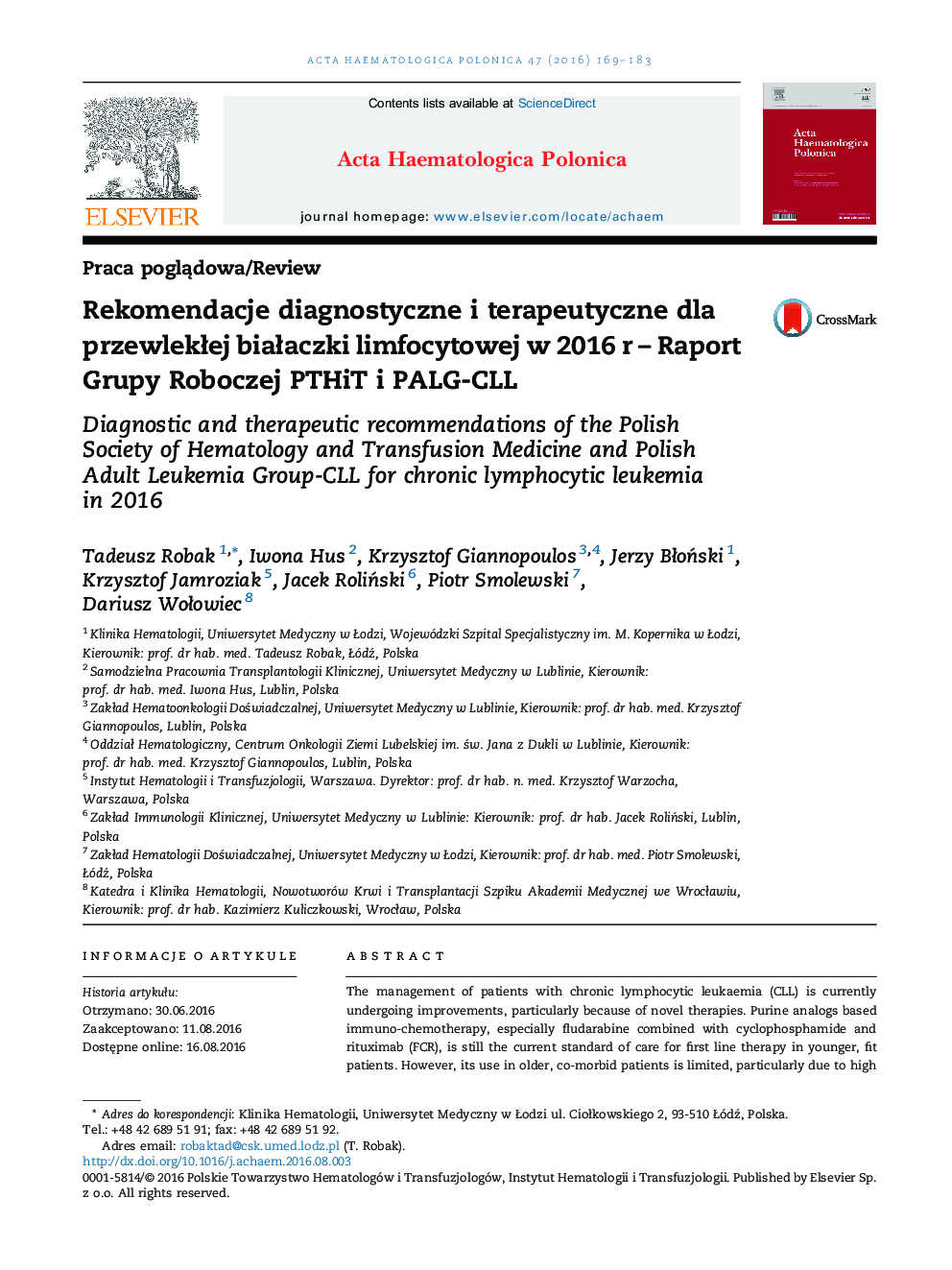| Article ID | Journal | Published Year | Pages | File Type |
|---|---|---|---|---|
| 3328047 | Acta Haematologica Polonica | 2016 | 15 Pages |
The management of patients with chronic lymphocytic leukaemia (CLL) is currently undergoing improvements, particularly because of novel therapies. Purine analogs based immuno-chemotherapy, especially fludarabine combined with cyclophosphamide and rituximab (FCR), is still the current standard of care for first line therapy in younger, fit patients. However, its use in older, co-morbid patients is limited, particularly due to high toxicity. In fit patients older than 65 years or/and with previous infections bendamustine and rituximab (BR) should be considered instead of FCR. Recently, in patients with relevant comorbidities chlorambucil and anti CD20 monoclonal antibodies (rituximab, obinutuzumab or ofatumumab) are recommended as the first-line treatment. In addition, in 2014, two novel agents targeting the B cell receptor (BCR) signaling pathway, ibrutinib and idelalisib, were approved for patients with 17p deletion and/or p53 mutations and in the relapsed situation because of high efficacy and a favorable toxicity. Subsequently, ibrutinib has been approved to treat CLL patients regardless of their treatment history. Thus far it is recommended to treat patients with these agents until progression or unacceptable toxicity. The BCL-2 antagonist venetoclax is another oral drug with very promising preliminary data in patients refractory to immunochemotherapy as well as patients harboring del 17p. In 2014, the PTHiT and PALG-CLL group defined guidelines for the diagnosis, prognosis and treatment of CLL. In this article, we present updated recommendations for therapy of CLL.
